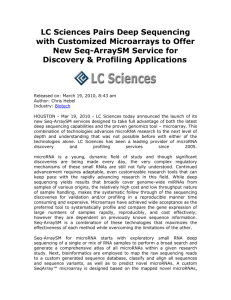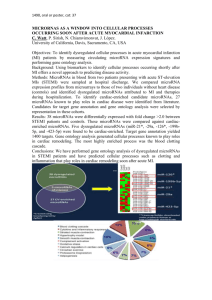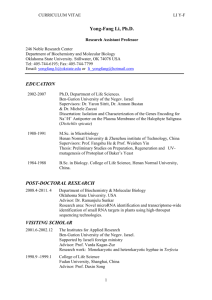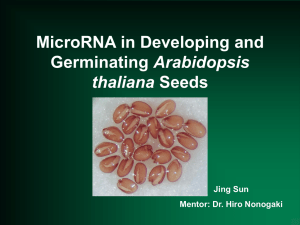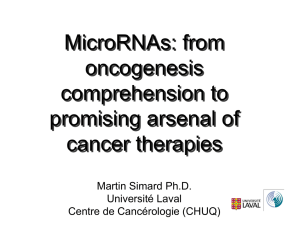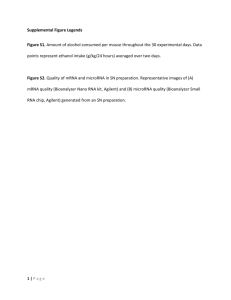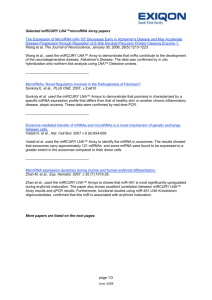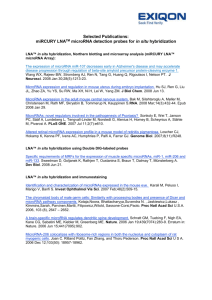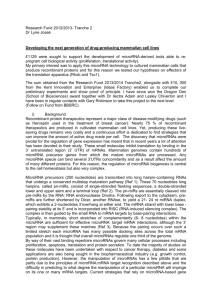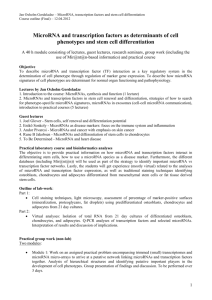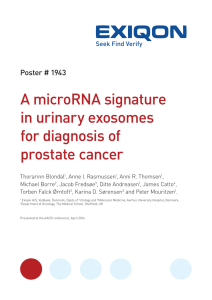here - Be The Cure
advertisement
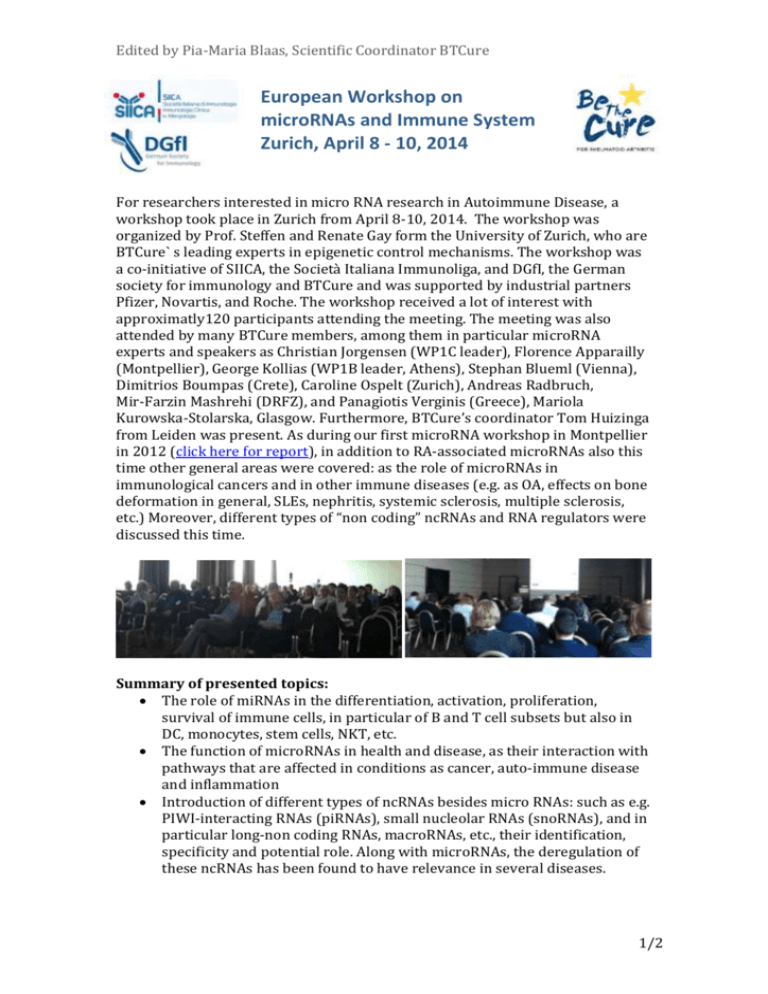
Edited by Pia-Maria Blaas, Scientific Coordinator BTCure European Workshop on microRNAs and Immune System Zurich, April 8 - 10, 2014 For researchers interested in micro RNA research in Autoimmune Disease, a workshop took place in Zurich from April 8-10, 2014. The workshop was organized by Prof. Steffen and Renate Gay form the University of Zurich, who are BTCure` s leading experts in epigenetic control mechanisms. The workshop was a co-initiative of SIICA, the Società Italiana Immunoliga, and DGfI, the German society for immunology and BTCure and was supported by industrial partners Pfizer, Novartis, and Roche. The workshop received a lot of interest with approximatly120 participants attending the meeting. The meeting was also attended by many BTCure members, among them in particular microRNA experts and speakers as Christian Jorgensen (WP1C leader), Florence Apparailly (Montpellier), George Kollias (WP1B leader, Athens), Stephan Blueml (Vienna), Dimitrios Boumpas (Crete), Caroline Ospelt (Zurich), Andreas Radbruch, Mir‐Farzin Mashrehi (DRFZ), and Panagiotis Verginis (Greece), Mariola Kurowska-Stolarska, Glasgow. Furthermore, BTCure’s coordinator Tom Huizinga from Leiden was present. As during our first microRNA workshop in Montpellier in 2012 (click here for report), in addition to RA-associated microRNAs also this time other general areas were covered: as the role of microRNAs in immunological cancers and in other immune diseases (e.g. as OA, effects on bone deformation in general, SLEs, nephritis, systemic sclerosis, multiple sclerosis, etc.) Moreover, different types of “non coding” ncRNAs and RNA regulators were discussed this time. Summary of presented topics: The role of miRNAs in the differentiation, activation, proliferation, survival of immune cells, in particular of B and T cell subsets but also in DC, monocytes, stem cells, NKT, etc. The function of microRNAs in health and disease, as their interaction with pathways that are affected in conditions as cancer, auto-immune disease and inflammation Introduction of different types of ncRNAs besides micro RNAs: such as e.g. PIWI-interacting RNAs (piRNAs), small nucleolar RNAs (snoRNAs), and in particular long-non coding RNAs, macroRNAs, etc., their identification, specificity and potential role. Along with microRNAs, the deregulation of these ncRNAs has been found to have relevance in several diseases. 1/2 Edited by Pia-Maria Blaas, Scientific Coordinator BTCure Examples for microRNAs that could work as potential biomarkers as in patients resistant to biologics treatment, and examples for microRNA as potential targets for inhibition and their potential future clinical use Some exemplary discussed microRNAs: mir-146, -148, -181, -150, -19b, 221, -222, -323-3p, -155, 34, -21, -203, -221, -222, -200a*, -152, -218, 199a/b, 29a, etc. Targeting microRNA pathways by lipid nano-capsules This year`s microRNA workshop in Zurich was recognized for its very efficient organization and lead to interesting and fruitful discussion of presented results. In the evening there was plenty room for socializing and follow-up discussions. Renate Gay, as the soul of the meeting, organized a wonderful social event in form of dinner on a boat cruising on the Zurich Lake, which was very well received. Outlook: During the meeting it was highlighted that currently different groups use different methods for microRNA analysis and measurement. In the future it would be important to improve collaborations in this area and to validate the detection of microRNAs as e.g. in blood for their future, broader use as disease biomarkers. Thus, the suggestions was brought up, to focus one of the next workshops on technical aspects, as reviewing the different types microRNA assessments and to commonly work on the standardization of methods. A smaller workshop on this question could be organized next time in Milano, followed by a larger, more scientific workshop in Germany 2016. 2/2
